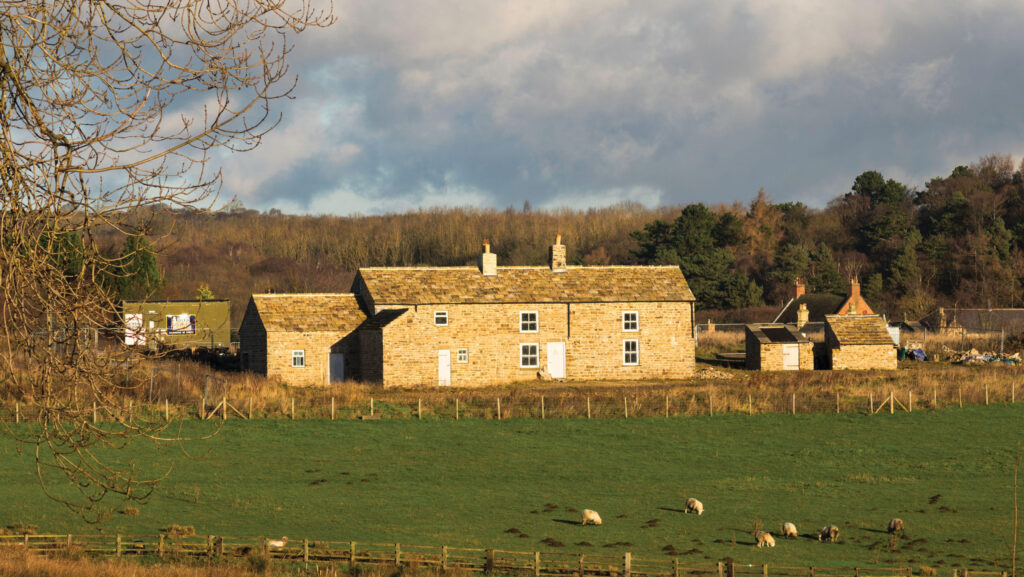Opinion: BBC article highlights naivety towards farming
 © Alamy Stock Photo
© Alamy Stock Photo On a family holiday to the North East in August, we visited the sprawling campus of the superb Beamish “living history” museum.
Taking an Edwardian tram from the entrance, we alighted at the immaculately restored “1950s farm”, one of three historic agricultural holdings – complete with period-accurate farmhouse, buildings, implements and livestock – through which visitors can wander.
Remarkably, Spain’s Field Farm had been transported (all 1,170 tonnes of it) from a site in Weardale, across the Pennines, to be rebuilt stone-by-stone at the museum, where you would never know it hadn’t sat for centuries.
See also: Farmers can’t pay for society’s ecological conscience
It was a delight to wander through the traditional sandstone and timber buildings with their hay lofts and dovecotes, past the two-pen pigsty, duck pond, chicken paddock and cattle byre, all populated with a handful of native breeds; the diminutive apple orchard and vegetable garden nestled just outside the farmhouse kitchen door.
I smiled as I thought back to a news article from the previous week: “More cattle kept in UK ‘megafarms’, BBC finds”.
The report breathlessly went on to relay a series of largely vague and meaningless metrics, while conceding there was no actual definition of the term “megafarm” (beyond serving the purpose of sounding suitably alarmist, perhaps).
Such “gotcha” pieces toward farming are, of course, wearyingly familiar.
It seemed to me, wandering the nostalgia-laden farm landscapes of past centuries at Beamish, that modern discussion of our food and farming system is of such low quality in part because many of those commenting on it from a comfortably urban setting see the museum pieces displayed on biscuit tins and in children’s books as an aspiration for the future, rather than a reflection of the past.
A past which has long-since been expunged by a growing global population and the relentless calculus of our modern economic system.
Spain’s Field Farm was moved from its 14th-century upland foundations and transported to be a tourist attraction on the outskirts of Newcastle because of a “lack of economic viability, changes in regulations and residents who migrated for better prospects”, according to Beamish.
Unfortunately, nostalgia among those who often seem to be discovering farming for the first time when commissioned to write an article about it is unlikely to be of much help to the relatively few remaining farmers across the country who are forced to adopt larger economies of scale to make the maths add up.
And why? Because the same society which projects its own nostalgias of a largely imagined bucolic idyll onto the modern countryside simultaneously demands the ever-cheaper food which led to its extinction.
Not only do those who equate scale with lower standards fundamentally misunderstand and misrepresent the reality of farming here in the UK, but so too do they miscomprehend the reasons for the decades-long drive for consolidation.
The economics of food production are broken, and ever-fewer farmers are left holding ever-greater risk, farming at an ever-greater scale in an attempt to make the sums add up as they subsidise the balance sheets of the rest of the food supply chain.
So before the Beeb writes another piece alleging nefarious activity behind the farm gate as dairy herds get ever-bigger, perhaps they should instead question why the industry lost 6% of its herds in the 12 months to April alone, before what’s left of our dairy sector joins Spain’s Field Farm in a museum.

